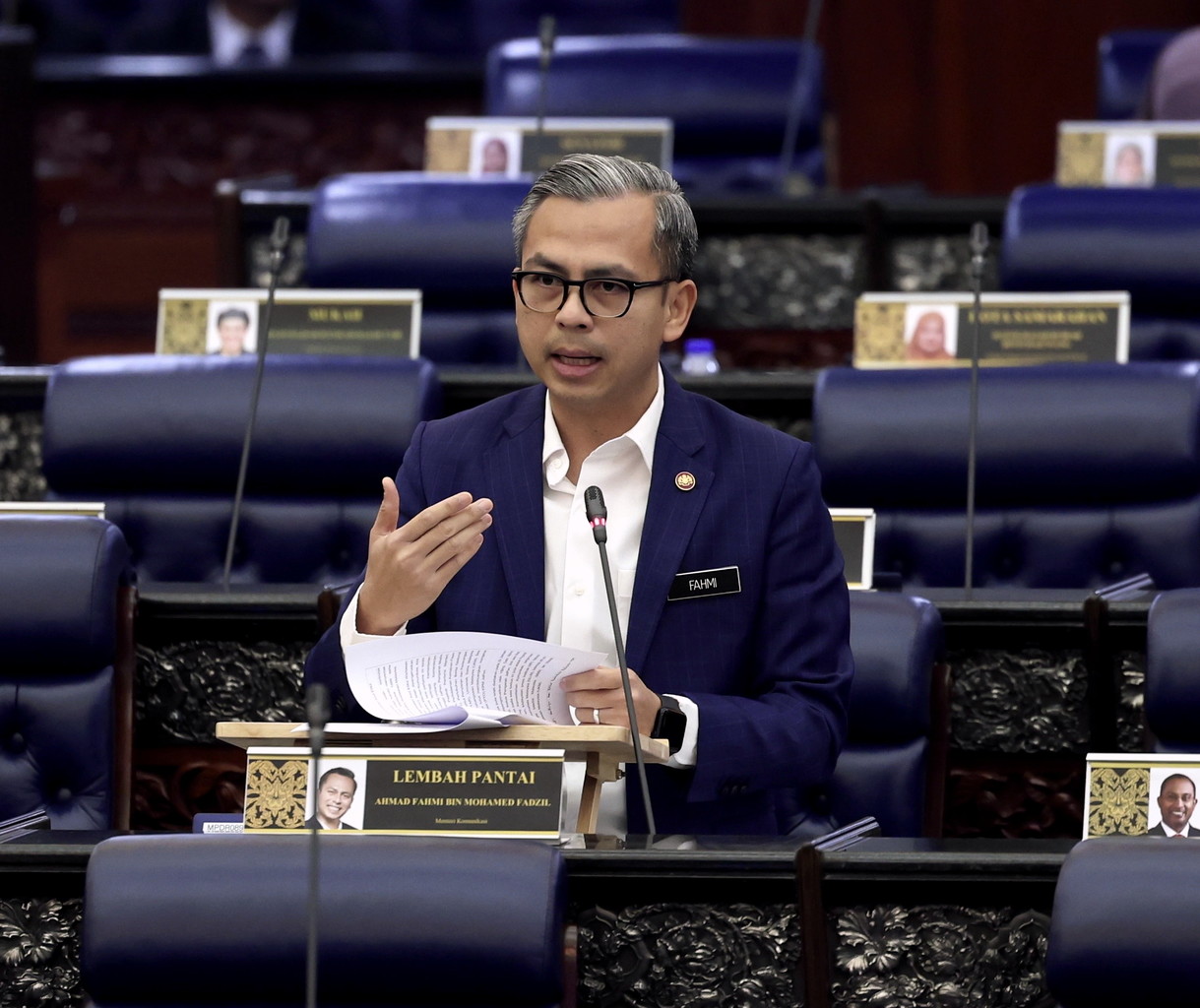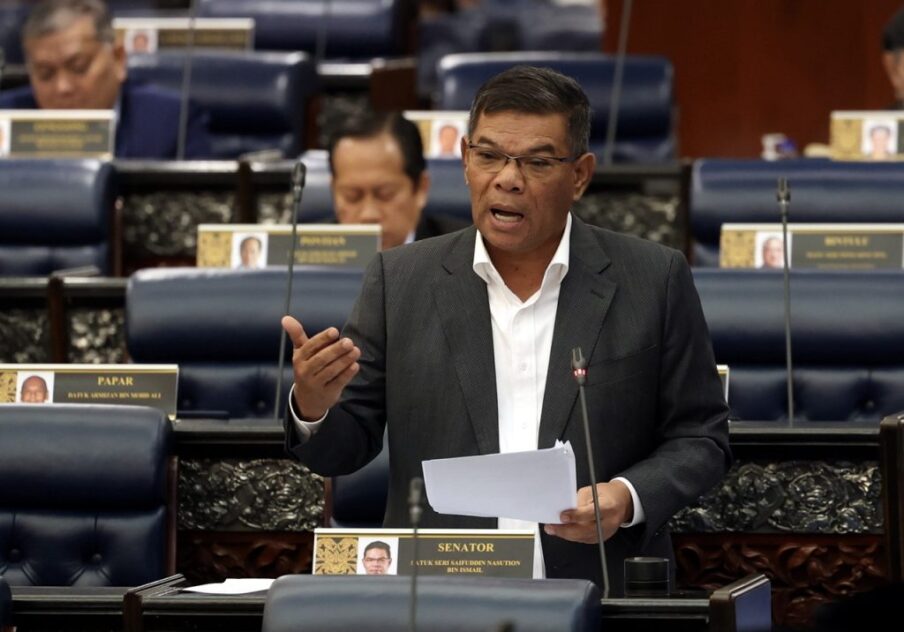COMMUNICATIONS Minister Fahmi Fadzil said his ministry has no intention to restrict journalists’ rights to report news by launching the Malaysian Code of Ethics for Journalists.
Fahmi went on to explain that the new code of ethics was published after consulting with the Malaysian Press Institute, National Union of Journalists, Information Department (JAPEN), pro-tem committee of the proposed Malaysian Media Council as well as other stakeholders.
Stressing that media freedom was a main core that everyone should support and allowed to thrive, Fahmi, who is also the Lembah Pantai MP, said he was among the members of Parliament who had fought for the welfare of journalists in the past.
“I myself have defended journalists in the Dewan Rakyat in the past and was bashed repeatedly for it, but I have always been an MP who has defended the rights of journalists in carrying out their duties,” he said during the Minister’s Question Time in Parliament on Tuesday (March 12).
“As a democrat and reformist, I have never stifled their rights. Media freedom should not only be supported but enhanced.”
Fahmi was responding to a question by Tasek Gelugor MP Datuk Wan Saiful Wan Jan on the government’s commitment to not stifle media freedom following the publication of the new code of ethics for journalists on February 20.
This is after several media organisations expressed concerns over the validity period of media accreditation cards and that this could be lowered in a move seen as restricting press freedom.
However, JAPEN clarified last week that accreditation for official government media practitioners, local media, including existing news outlets, as well as Malaysian correspondents for foreign news outlets, remained at two years.
Meanwhile, foreign media practitioners with international media outlets and those employed on a contract basis are entitled to a one-year validity period, while new online media agencies will now have their validity shortened to six months from the first application.
It said this is to ensure the outlets were genuine, active and do not engage in the publishing of disinformation.
On this matter, Fahmi also stressed that a media accreditation card is not similar to professional accreditations, noting that its absence does not stop a journalist from covering the news.
“Again, I have to stress that the media card is only issued to journalists attached to accredited news agencies that wish to cover government events or Parliament sittings on site,” he added.
Citing UK journalist Claire Rewcastle Brown as an example, Fahmi said not having a media card would not prevent any journalist from writing a news report.
“For example, (UK journalist) Claire Rewcastle Brown does not have a media card, but she can write… anyone out there can write,” he stated.
“I give my guarantee. Alhamdulillah, since I hold this portfolio, not one journalist has been arrested, dragged to court, or investigated for their reports.”
Main pic credit: Bernama









